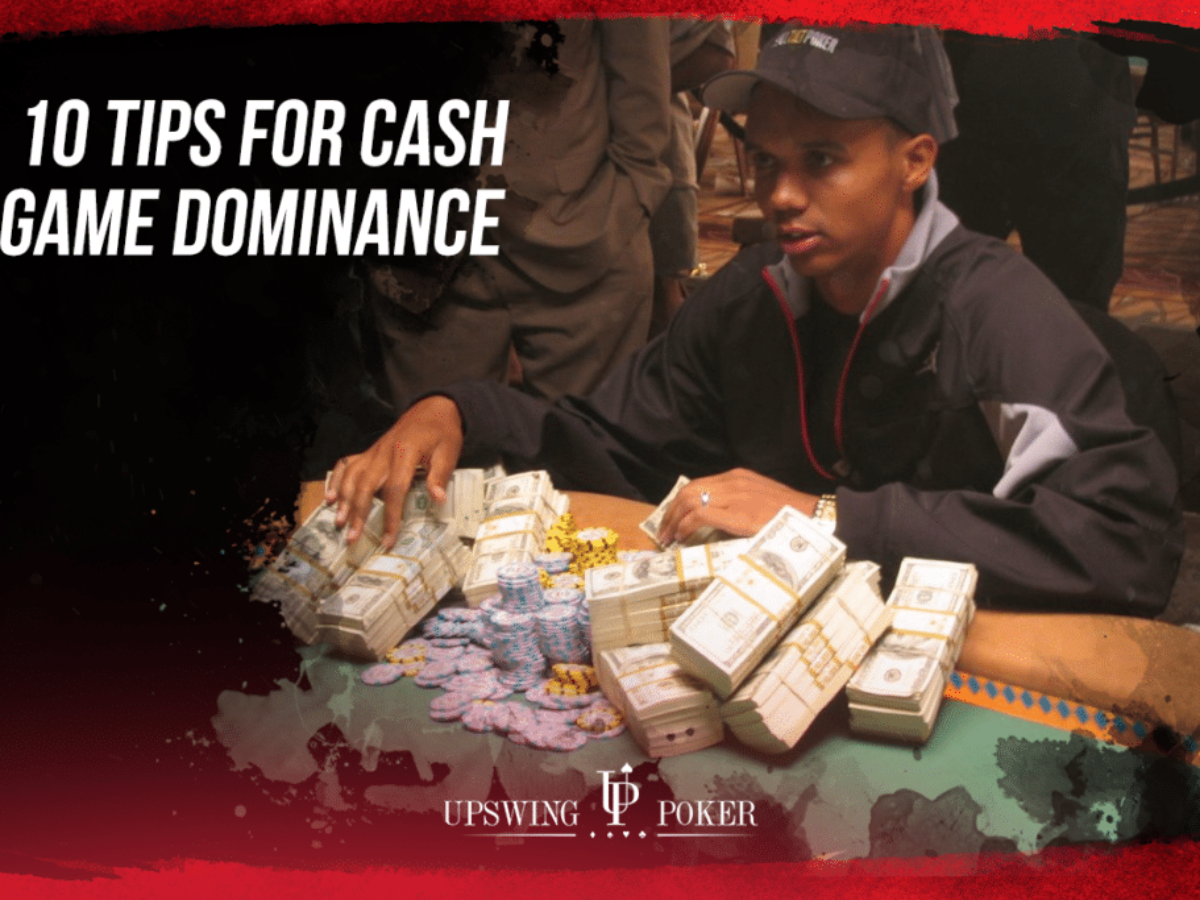
- Raise Your Edge. Raise Your Edge has not been around as long as some other poker.
- Texas Holdem: Cash Game Strategy. While almost all of the television coverage of Texas holdem over the past 20 years has been of tournament play, millions of dollars are won and lost in cash games every day. Some players are able to play a profitable game in both tournaments and cash games, while others concentrate on one form.
- Starting with Opening Hands. The hands that you choose to go into battle with in Texas Hold’em are.
The GamblingSites.org poker strategy section offers in-depth strategy articles that focus on a number of different areas in the game. From live play to online play, it’s covered here. You’ll be able to learn everything from basic bankroll management to game play concepts that you can work into your existing strategy. We have prepared these articles with the goal of teaching and educating players of all experience levels, and we hope that they will improve your game and overall income from playing poker.
Most recreational players in online poker cash games are passive, so after identifying weaker ones, you have to adjust your strategy to exploit them. Obviously, you will be facing different players all the time, so you should observe how they play and use poker statsto identify the best strategy against each of them.
Strategy Sections Covered:
Live poker is the most traditional form of the game. Whether you visit Atlantic City, Las Vegas, or somewhere in between, you’ll find that poker is one of the main attractions in every casino. Live poker offers a variety of dynamics that vary greatly from what you’ll find in typical online play. You’ll need to learn how to identity and understand live tells, what playing in a casino entails, and how to find the best game for you with the least amount of time and effort. The game may be the same in terms of rules, but it actually plays quite differently when you shift from online to live play.
Etiquette in Live Poker
Game Selection in Live Poker
Avoiding the Pit
Common Live Poker Variance
Bankroll Management in Live Poker
3-Betting in Live Poker
100 BB vs. 200 BB Games
Analyzing a Player’s Talk
Bet Sizing in Live Poker
What Bet Sizing Tells You
How to Induce Calls
How to Induce Folds
Playing Draws in Live Poker
Indicators of Strength in Live Poker
False Tells, Min Raises and Overbets
Bluff Catching in Live Poker
Types of Live Poker Players by Appearance
Types of Live Poker Players by Strategy
Talking to Players to Gain Information
Continuation Bets and Double Barrels
Body Language in Live Poker
Check Raising in Live Poker
How to Protect Yourself From Giving Off Tells
Online Plays That Don’t Work Well Live
How to React to Straddles and Other Plays
Online poker is largely what enabled Texas Hold’em and other forms of poker to explode after 2003. If it wasn’t for Chris Moneymaker winning a satellite tournament on PokerStars to earn his entry into the World Series of Poker Main Event, who knows if the game would have ever become really popular. As the years progressed, online poker really began to change. At one point in time, even the weakest of players were able to generate huge amounts of profit. As players gained more experience, however, the skill levels continued to rise. Online poker isn’t what it once was in terms of playing styles, and the ability to adapt is one of the most vital skills that a player can possess.
Poker Micro Cash Game Strategy
Bankroll Management in Online Poker
Multi-Tabling
Handling Online Poker Tilt
Variance in Online Poker
How to Use a HUD and PT/HEM

Poker isn’t just about playing your cards; there is a lot more involved than you may realize at the surface. Some of your biggest assets as a player will come from skills that you practice when you aren’t on the felt. This could mean mathematical decisions, emotional control, financial decisions, and so on and so forth. Having a sound framework for your play is one of the easiest ways to ensure that you are creating a profitable future in the game. These articles focus on the broader areas of the game and lend themselves to a much more general approach to the game.
Short Stack Strategy
Calculating Implied Odds
Beating Loose Players
Beating Aggressive Players
Beating Passive Players
TAG Playing Style
LAG Playing Style
Table Image, Presence, and Awareness
Playing in 100BB Games
Bankroll Management
Moving Up in Limits
Games and opponents are one of many ever changing variables in poker. You won’t usually be in the same sort of game dynamics as you move from table to table and room to room. Making the necessary adjustments in your play in order to capitalize on specific circumstances is absolutely crucial if you want to be a long term winner in the game. These articles were designed with the objective of elaborating on defined situations, game types, and opponents. Use the parameters in the titles to understand how strategy varies from one situation to the next.
Playing Out of Position
Open Raising
Continuation Bets
Double Barrels
Giving Up
Playing JJ, QQ, and AK
Flopped Flush Draws
Stealing Pre-Flop
Multi-Way Pre-Flop Pots
Suited Connectors
Small Pocket Pairs
Middle Pocket Pairs
Check Raises-Flop, Turn, and River
Tournament poker is one of the two primary forms of the game. Odds are that you were introduced to poker via tournaments in one way or another. You might have watched poker tournaments on TV, you may have played in home tournaments with friends, or you may have heard about them from others. No matter what got you involved in tourney play, you know that there’s a lot of complex strategy involved. Tournaments come in many different shapes and sizes, and being able to alter your strategy for different events is a necessity.
Playing in Small and Mid-Stake Events (<1k)
Passive vs. Aggressive Tourney Play
Regular vs. Turbo Tournament Play
Pre-Flop Hand Selection in Early Levels
Stealing the Blinds in Early Levels
Value of Position in Early Levels
Speculative Hands in Early Levels
Three Bet Ranges in Early Levels
Three Betting Light in Early Levels
Small Pocket Pairs in Tournaments
Middle Pocket Pairs in Tournaments
Playing JJ, QQ, and AK in Tournaments
Playing KK and AA in Tournaments
Set Mining in Tournaments
Playing Draws in Tournaments
Floating in Tournaments
Continuation Bets in Tournaments
Double Barrels in Tournaments
Bluffs in Tournaments
Playing Limped Pots in Tournaments
Bet Sizing in Tournaments
Isolating in Tournaments
Large vs. Small Tournament Fields
Sit n go poker is the abbreviated version of tournament play. You won’t be playing for hours or days on end, but you are playing with the goal of knocking out your opponents until there’s only one player left standing. As is the case with tournaments and cash games, there are many different types of sit n go’s in existence. You could play faster paced games, deep stacked games, etc. As the third most popular form of poker, sit n go’s create plenty of opportunity for profitability.
SNG Basic Strategy
Turbo SNG Strategy
Ultra Turbo SNG Strategy
Heads Up SNG Strategy
Playing the Bubble in SNG
6-Max vs. Full Ring SNGs
Multi Table SNGs
Push/Folds in SNGs
Satellite SNG Strategy
Measuring Success in Cash Games
Before we discuss the strategy in cash games, it’s important to define what success means. Success in cash games is measured in what’s called a win rate. Your win rate is the difference in skill between you and your opponents, minus the rake. Win rates can be negative if your opponents are better than you or the rake is too high (this most commonly happens in private home games where the usurious rake renders the game unbeatable).
Win rates online are measured in big blinds per 100 hands whereas win rates live are measured in big blinds per hour.
Here’s a simple example. John is a regular at the $5/$10 No Limit Hold’em cash game at the Bellagio. Because he keeps good records (something we strongly recommend all players do—you can use the app, ‘Poker Income’ or ‘RunGood’ to easily track your records), John knows that he has won $2,000 in the last month/50 hours of play—including tips and rake.
To calculate his hourly rate is simple: $2,000/50 = $40 per hour. (Therefore his bb/hour is 4).
To measure his win rate (in big blinds per 100 hands or BB/100), we first have to know how many hands he plays per hour on average. While the true number of hands dealt may vary slightly from casino-to-casino (depending on the speed of the game and number of players seated at the table), I’ve calculated that on average John can expect to play 27 hands per hour:
John has therefore played 50 x 27 = 1,350 hands.
John has won $2,000/10 or 200 big blinds.
John’s win rate is 200/(1,350/100) or roughly 15bb/100.
John should be proud; that’s an incredible win rate: although statistically insignificant, since 1,350 hands is not a large enough sample size. (For more on how to calculate win rates and variance, in both tournaments and cash games, see my definitive guide to bankroll management).
Best Online Poker Strategy
The truth is that 90% of poker players will have a negative-win-rate; therefore, any positive-win-rate should be considered an accomplishment. Assuming that you have a positive-win-rate, you can begin to compare your win rate against other players with positive-win-rates.
Breaking down the 10% category of positive-win-rate players even further, we can calculate various levels of win rates for live poker. Keep in mind that these are just estimations and possible win rates, and that games vary incredibly from casino-to-casino and player-to-player.
Online win rates will be reduced dramatically. Anything above break-even online is considered
great, whereas typical win rates at mid stakes games are 2bb/100 (or 0.5bb/hour), a testament to how competitive the games have become.
For live poker, I’m basing my estimations on some diligent records I kept over the years playing live poker in Macau and talking to other winning players, clients and readers whose games I respect. In my own experience, I regularly won 15BB/hour in Macau for the several years at stakes as high as $10,000/$20,000 HKD, No Limit Hold’em (roughly $1,250/$2500 USD)
– Amateur: Losing win rate.
– Good Player: Anything above breaking even, or > 1BB/hour
– Very Good: > 3BB/hour
– Great /Pro: > 5BB/ hour
– Excellent: > 10BB/hour*
– World Class: > 15BB/hour
*If you are regularly winning at 10BB/hour, I would advise moving up to the next limit to test out the competition and sharpen your skills.
To get a statistically significant sample size, you must play thousands of hands to determine that your win rate is not the result of luck or variance, rather a true skill advantage.
For more information about variance in cash game poker check out this video:
Playing in games with a lower rake is one way you can immediately improve your win rate in cash games. Casinos such as the Commerce in Los Angeles and the Bellagio, Aria or Wynn in Las Vegas offer safe, secure cash games with competitive rake. (They even give players rakeback in the form of food comps).
Online Poker Cash Game Strategy
Online poker usually has the lowest rake, but since the level of competition is higher, it usually means that your overall win rate is still lower online than it is live. Most people will profit more in live poker games because the influx of recreational players makes the game much softer.
